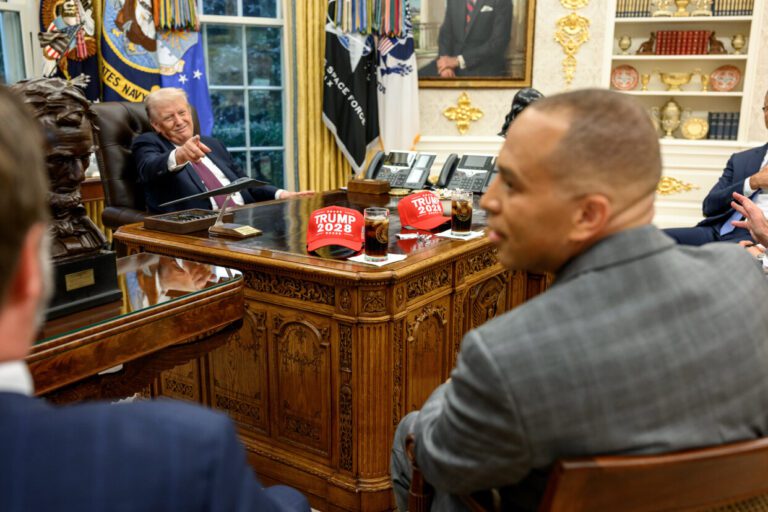Bipartisan Talks on Government Shutdown Intensify Amid Funding Dispute
As the government shutdown looms, bipartisan discussions have started to gain momentum following the Democrats’ rejection of a GOP funding bill for the second consecutive day. Central to the funding standoff is the Democratic demand for an extension of the Affordable Care Act (ACA) premium tax credits.
Senate Vote and Initial Discussions
On Wednesday, the Senate voted down the GOP continuing resolution, with 55 senators voting in favor and 45 against. A 60-vote threshold is required for the appropriations package to advance.
Following the failed vote, a number of senators convened to explore a way out of the stalemate. Senator Tim Kaine remarked, "It’s just bipartisanship. It’s just flowering there," emphasizing the constructive nature of the discussions.
Key Issues on the Table
Primary Democratic Concerns
Senator Kaine highlighted two pressing issues for Democrats:
-
Extension of ACA Tax Credits: Democrats are advocating for the continuation of federal subsidies that assist individuals with health insurance under the ACA, set to expire at the end of this year.
- Financing Accountability: Concerns have arisen regarding the Biden administration’s management of allocated federal funds, particularly after the Office of Management and Budget froze $18 billion for New York City infrastructure projects in what appears to be a punitive measure against opposition Senate leadership.
Kaine noted, “I think everybody should be worried… the most important thing about this budget negotiation is getting the president to agree that a deal is a deal.”
Republican Stance
Republican Senator Mike Rounds, who initiated the bipartisan talks, acknowledged the detrimental impact the cessation of ACA subsidies would have on Republican states. However, he insists that Democrats should focus on resolving the shutdown before substantive negotiations on subsidies.
Rounds stated, “We’re not there yet,” while advocating for a clean, 45-day government funding extension to facilitate further dialogue regarding subsidies.
Potential for Agreement
Rounds suggested that some Republicans might be open to a one-year extension of the tax credits, provided there are reforms to prevent affluent individuals from benefiting improperly. This sentiment was echoed by Democrat Senator Peter Welch, who found Republican approaches “reasonable” but insisted on immediate guarantees regarding the subsidies.
Concerns Regarding Funding Cuts
The negotiation integrity is at stake, particularly with the Trump administration reportedly targeting states led by Democratic senators who opposed the continuing resolution. Notably, $8 billion was cut from projects across 16 states, all represented by senators who voted against the measure.
The disparity is striking; states with Democratic senators supporting the continuing resolution—Pennsylvania, Nevada, and Maine—were spared from cuts.
Senators Kaine and Chris Murphy voiced apprehensions about moving forward with funding, fearing that bipartisan agreements could be undermined by unilateral presidential actions. “We’ve got to know that a deal is a deal,” Kaine reiterated.
Murphy’s Critique of Presidential Actions
Senator Murphy labeled President Trump’s actions as “clearly illegal,” arguing that funding decisions should not be used as political leverage against opponents. “This is not a functioning democracy if the president seizes spending power in order to reward his friends and punish his enemies,” he asserted.
Conclusion
As bipartisan talks advance, the critical issues surrounding ACA tax credits and the government’s operational continuity remain unresolved. Both sides express a need for transparent negotiations that ensure a deal is honored and that federal funds are allocated fairly.
For ongoing updates, explore additional resources such as the Affordable Care Act and governmental financial appropriations on Congress.gov.
The path forward remains uncertain, but there is potential for meaningful compromise if lawmakers can navigate the complexities of the current funding crisis effectively.


